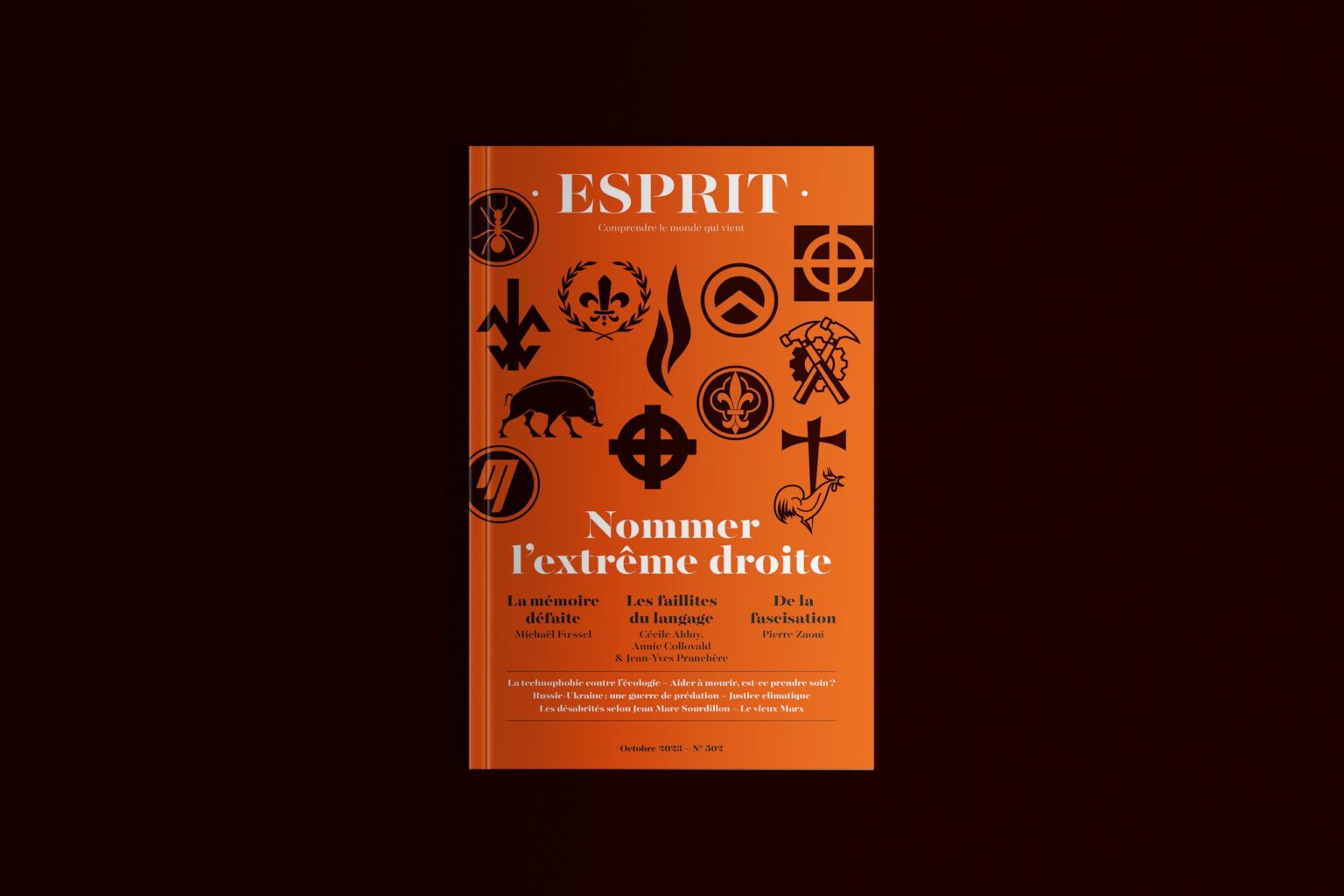In a problem of Esprit Nicolas Massol focuses on the acute proper and follows the evolution of the Rassemblement Nationwide (RN) over the previous ten years. What’s the RN now, he asks, “an excessive right-wing social gathering hiding its true nature,” or a “patchwork of nationalism, radical right-wing pondering, populism, pragmatism, demagoguery and even some parts of progressivism?”
In 2013, nationalist-racist author Dominique Venner described his suicide as an act essential to convey the French out of their lethargy and battle towards the ‘nice alternative’. When Marine Le Pen tweeted her admiration, nobody was stunned. However the ensuing decade has seen a reversal, with the social gathering now rejecting any ties to far-right figures, maintaining these linked to violence or radicalism out of the highlight and closely rewarding new recruits from conventional events.
The Nationwide Entrance used demonization as a method for many years, exploiting its place as an outsider. However the RN (renamed in 2018) now prefers a theater of (partial) de-demonization, during which Le Pen ‘now performs reverse Éric Zemmour’. With 88 deputies within the Nationwide Meeting as of 2022, the RN’s new aim is to adapt. The political technique is ‘constructive’; since 2022 it has introduced solely consensus-building proposals, none of which concern immigration or ‘nationwide desire’ – though this doctrine of giving French residents precedence in jobs, social help and housing stays RN coverage.
However regardless of the repositioning, the networks of the far proper are nonetheless intertwined and important to the social gathering. An instance is e-Politic, the RN’s communications supplier, and a feeder group for the social gathering. The RN retains it at a distance due to the novel politics of its shareholders, however can not break ties with it. The previous decade has due to this fact been characterised by incoherence: ‘Steeped in an excessive right-wing ideology that they’re now not allowed to brazenly embrace, RN activists now belong to a celebration with out a actual frequent tradition.’
Again to the thirties
Adam Lévrier challenges the euphemistic description of France’s modern far-right media retailers as ‘pluralistic… areas that respect all opinions’. It’s a denial, he argues, of the continuity of a “nationalist and xenophobic journalistic custom” that started within the Belle Epoque and flourished till the tip of the Second World Struggle.
Lévrier examines the far-right media in France, specializing in the empire of tycoon Vincent Bolloré, which additionally consists of CNews and, since earlier this yr, the Sunday newspaper (JDD), now with the far-right journalist Geoffroy Lejeune on the helm. Just like the historic far-right press, these media see themselves as defending “a France threatened… corrupted by the enemy’s presence inside.” The scapegoating of the ‘unassimilable foreigner’ additionally continues, with the rolling information channels continuously repeating ‘their accusations towards Muslims and communities of overseas origin’.
On the J.D.D, Lejeune imbues each subject along with his “identitarian obsessions.” Following the ‘linguistic excesses’ of the Twenties and Thirties, in the present day’s far-right press questions democratic establishments and portrays them as ‘corrupt elites, below overseas affect, and incapable of defending the nationwide curiosity’. A polemical type and “a penchant for battle and outrage” have grow to be its defining traits, attacking centrist and left-wing visitors on CNews in an “nearly ritualistic method.” However regardless of this tone of violence, these platforms deny the affect of any ‘far-right’ ideology.
However this might not be the case for for much longer. Éric Zemmour, a key determine at CNews, has by no means hidden his fascination with notables from the historic far proper. His “radicalness and outspokenness” have gained him supporters and made him “a pioneer and a mannequin for a technology of journalists who in the present day are desperate to observe his instance.” The brand new group of the J.D.Da few of whom are primarily anchored on the far proper, owe a debt of gratitude to Zemmour for bringing out a long-maligned discourse from the chilly.
Fascization
The far proper is on the rise in Europe – however are these events and their supporters fascist? It’s a pointless debate, argues Pierre Zaoui. Extra fruitful is recognizing the ‘fascization’ that has been at work in European societies and past for the reason that Eighties. This course of, like ‘racization’ – a ‘social course of that constructs the Different’ – works by ‘language, our bodies’ [and] flows’, and Zaoui affords ‘sensible classes’ to show the tide.
In a society that fascinates, language transforms in an ‘impersonal and nearly autonomous’ manner. At first it’s ‘gibberish and primitive’, however because it spreads by our social areas, fueled by the media, rumors and the discourse of highly effective enterprise individuals, it takes form. Finally, the ‘horrible fascist language’ emerges. This distinguishes between ‘buddies and enemies, them and us, right here and there’ and, by ‘use’ to nausea of a vocabulary of extermination’, legitimizes violence towards the Different.
Each the signifiers of this violence and the act itself trigger a bodily sensation. This, usually secret, pleasure in eradicating the weak currents by our societies, ‘by all social our bodies’, which have an effect on everybody. To forestall immersion, we should erect limitations: electorally, when we’ve got the appropriate to vote; linguistically, after we refuse the lexicon of extermination; and bodily limitations to beat again the fascists ‘on the streets, within the soccer stadiums or in Ukraine’.
In contrast to the battle towards fascism, which entails weapons and is a life-and-death battle, the battle towards fascisation is “extra multifaceted and fewer violent.” It requires every individual to eradicate it from themselves, whereas on the similar time resisting it in others.

